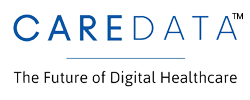Being in the market for healthcare IT (information technology) we receive numerous queries every day. People engaged in the business of pathology labs are trying to find the best LIMS to implement at their lab at the most cost-effective price for turning their standard labs into the modern pathological centers of excellence. What we understand by these queries is that while healthcare IT organizations are investing heavily in the marketing and advertising of Laboratory Information Management Systems, they have not been successful in educating the grass root level pathology lab owner on the features and benefits of LIMS.
 Laboratory Information Management Systems is the NEW GAME that has taken over the laboratory industry by storm. Today’s norms call for a modern, fully equipped Centre of Excellence (CoE) for testing than the laggard labs we are all used to seeing from the old days. The modern Lab Information Management System (LIMS) provides benefits to all aspects of the business – from internal functioning of the lab to the experience being provided to the external clients including samples, inventory, accounting, reporting, collating etc. Today a modern and scalable LIMS can assist labs from their initial journey to the stage of multi-city and multi-facility operations.
Laboratory Information Management Systems is the NEW GAME that has taken over the laboratory industry by storm. Today’s norms call for a modern, fully equipped Centre of Excellence (CoE) for testing than the laggard labs we are all used to seeing from the old days. The modern Lab Information Management System (LIMS) provides benefits to all aspects of the business – from internal functioning of the lab to the experience being provided to the external clients including samples, inventory, accounting, reporting, collating etc. Today a modern and scalable LIMS can assist labs from their initial journey to the stage of multi-city and multi-facility operations.
In this post we will share 6 important features of Laboratory Information Management Systems that every pathologist should know:
Reducing chances of Human Error and Contamination:
Automation due to the implementation of Laboratory Information Management System (LIMS) drastically reduces chances of human error and contamination which may be caused due to stress, miscommunication, improper training et al.
Sample Management:
Each and every sample that is processed in LIMS is accounted for and allotted a unique batch number and code. This unique code allows real-time tracking of samples where pathologists and managers can manage the workflow while sitting in front of their computer. This reduces the chances of mix-ups and error in reporting.
Records Availability & Scheduling
LIMS ensures that historical data of patients is available with the click of a button.All history about a patient from medical history to old tests, everything is stored on the servers of the LIMS. All this information is saved by a unique ID and can be accessed by the technician on their computer. A modern lab information management system also allows for smarter appointment scheduling and sends out SMS alerts on successful booking of slots and/or change in appointments if any.
Increase Revenue:
The LIMS creates data for every transaction and every new entry. All this data is meaningful insight when you can use it in an effective way. The laboratory information management system converts data points to valuable reports. These reports when in the correct hand can highlight trends and help make smarter decisions. Smarter decisions help increase revenues of the lab.
Inventory Management:
Inventory management is one of the most important features of a laboratory information management system. Consumption-based inventory management allows in time ordering of supplies and inventory. This ensures that essential supplies never run out in your lab.
Financial Management:
Modern LIMS are built with different modules which help the ease of doing business including modules for financial management and accounting management. These simple to use add-on packages help in the smoother functioning of the labs.
Laboratory Information Management System is the future of laboratories. Hence it is all the more important to choose a LIMS that would perform the expected functions and at the same time help to reduce costs. An example of such a Laboratory Information Management System is CareData LabTRAK.
We have a super friendly support team who would be happy to schedule an online product demo for you. Check out our website https://caredatainfo.com to learn how CareData Informatics can help you move ahead in the game.

